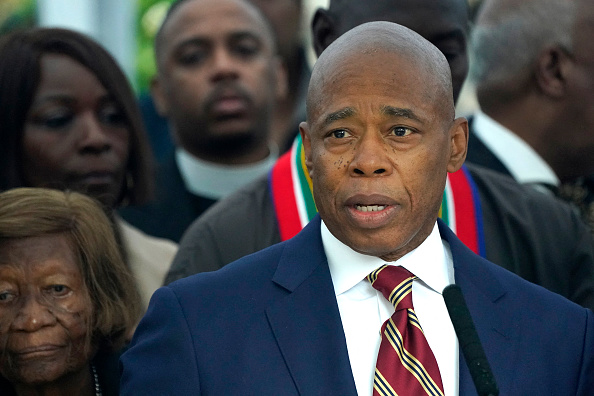The government recently published the General Scheme of the
Employment (Restriction of Certain Mandatory Retirement Ages) Bill
2024 (General Scheme).
The General Scheme seeks to allow, but not compel, an employee
to remain in employment until reaching the “pensionable
age” under social welfare legislation. “Pensionable
age” is currently age 66 (State Pension Age).
These reform proposals follow State Pension reforms which we
discussed in a previous article. Both reforms were agreed by the
Cabinet in 2022 after the Pension Commission’s report, in
tandem with the decision for the State Pension Age to remain at age
66.
Mandatory retirement ages (MRAs) remain a
common feature in employment contracts in Ireland. Our previous article discussed the enforceability of MRAs.
The General Scheme does not seek to abolish MRAs and it is
important to remember that employers can still seek to enforce
their MRAs if the following conditions are met: (1) the MRA is
objectively and reasonably justified by a legitimate aim and (2)
the means of achieving that aim are appropriate and necessary.
Instead, the General Scheme seeks to enable employees to decide
whether to consent to their employer’s MRA. If an MRA is lower
than the State Pension Age, an employee can choose not to consent
to such an MRA. In this instance, the employee’s employment
contract shall be deemed to prescribe the MRA as (a) the State
Pension Age or (b) the age at which the employee consents to retire
(i.e. a date which is later than the employer’s MRA but before
the employee reaches State Pension Age).
Requirements
An employee who chooses not to consent to their employer’s
MRA must notify their employer in writing. An employee must provide
at least three months’ written notice (or another period of
notice specified by their employer up to a maximum of 6 months) to
their employer in advance of the date on which the employee would
have been required to retire according to their employer’s
MRA.
Once such written notice has been provided an employer may not
retire that employee before a date on which the employee consents
to retire or before the employee reaches the State Pension Age,
whichever is earlier. Otherwise, the employer risks the employee
submitting a complaint to the Workplace Relations Commission
(WRC) (see below). Employers will assume that an
employee consents to their MRA if no such written notification is
received. Employees have the right to withdraw their notification
subject to complying with their contractual or statutory notice
period.
Employee Redress
The General Scheme provides that an employee who has been
dismissed before reaching State Pension Age, despite notifying
their employer of their intention to continue working until State
Pension Age, can seek redress in the WRC. An employee may seek
redress under the pre-existing unfair dismissals legislation or the
employment equality legislation, but not both.
The General Scheme provides that the proposed legislation will
not restrict the employment equality legislation. As discussed in
our previous article, under employment equality
legislation, an exception to age-based discrimination exists
whereby MRAs are permitted if an MRA (1) is objectively and
reasonably justified by a legitimate aim and (2) the means of
achieving that aim are appropriate and necessary. There will be no
change to the operation of this exception if the proposed Bill
comes into force. As such, employers will have a valid defence to a
complaint submitted under employment equality legislation for a
breach of the proposed employee entitlement to decide to work
beyond the MRA if they can satisfy the WRC on items (1) and (2)
above in the context of the application of the MRA to the
individual complainant.
Impact on Pension/Risk Benefits
If employees invoke the restrictions on MRA (once implemented)
to work to State Pension Age (Late Retirees),
there will be important considerations for employers where they
provide pension and risk benefits. As many of these benefits will
have been designed with a retirement age of 65 in mind, key
questions to consider include:
- will the pension scheme rules permit a Late Retiree to continue
to make member contributions to the pension scheme and will
employer contributions continue? - what death in service benefit is payable for a Late Retiree and
does insurance cover need to be extended to maintain cover for Late
Retirees? - will income protection cover cease for the Late Retiree?
It may prove difficult or costly for employers to extend cover
for Late Retirees in individual cases (depending on the
circumstances). Employers should plan, before implementation of the
General Scheme, so that the implications of the reforms for pension
and risk benefits are thought out in advance and any mitigating
steps implemented.
What Happens Next?
The government’s legislative programme for Spring 2024
confirms that heads of bill are being prepared for the Employment
(Restriction of Certain Mandatory Retirement Ages) Bill 2024. We
anticipate the publication of the Bill in the coming months but
given the recent resignation of the Taoiseach Leo Varadkar, the
publication of the Bill may be delayed. The Regulatory Impact
Analysis (RIA) published alongside the General
Scheme acknowledges the challenges for employers with how the
reforms will interact with existing MRAs. Helpfully, to mitigate
these challenges, the RIA indicates an intention to give a
“lead in” time and guidance for employers.
Employee Redress
The General Scheme provides that an employee who has been
dismissed before reaching State Pension Age, despite notifying
their employer of their intention to continue working until State
Pension Age, can seek redress in the WRC. An employee may seek
redress under the pre-existing unfair dismissals legislation or the
employment equality legislation, but not both.
The General Scheme provides that the proposed legislation will
not restrict the employment equality legislation. As discussed in
our previous article, under employment equality
legislation, an exception to age-based discrimination exists
whereby MRAs are permitted if an MRA (1) is objectively and
reasonably justified by a legitimate aim and (2) the means of
achieving that aim are appropriate and necessary. There will be no
change to the operation of this exception if the proposed Bill
comes into force. As such, employers will have a valid defence to a
complaint submitted under employment equality legislation for a
breach of the proposed employee entitlement to decide to work
beyond the MRA if they can satisfy the WRC on items (1) and (2)
above in the context of the application of the MRA to the
individual complainant.
Impact on Pension/Risk Benefits
If employees invoke the restrictions on MRA (once implemented)
to work to State Pension Age (Late Retirees),
there will be important considerations for employers where they
provide pension and risk benefits. As many of these benefits will
have been designed with a retirement age of 65 in mind, key
questions to consider include:
- will the pension scheme rules permit a Late Retiree to continue
to make member contributions to the pension scheme and will
employer contributions continue? - what death in service benefit is payable for a Late Retiree and
does insurance cover need to be extended to maintain cover for Late
Retirees? - will income protection cover cease for the Late Retiree?
It may prove difficult or costly for employers to extend cover
for Late Retirees in individual cases (depending on the
circumstances). Employers should plan, before implementation of the
General Scheme, so that the implications of the reforms for pension
and risk benefits are thought out in advance and any mitigating
steps implemented.
What Happens Next?
The government’s legislative programme for Spring 2024
confirms that heads of bill are being prepared for the Employment
(Restriction of Certain Mandatory Retirement Ages) Bill 2024. We
anticipate the publication of the Bill in the coming months but
given the recent resignation of the Taoiseach Leo Varadkar, the
publication of the Bill may be delayed. The Regulatory Impact
Analysis (RIA) published alongside the General
Scheme acknowledges the challenges for employers with how the
reforms will interact with existing MRAs. Helpfully, to mitigate
these challenges, the RIA indicates an intention to give a
“lead in” time and guidance for employers.
Contributed by Ellen O’Duffy and Jane Barrett
The content of this article is intended to provide a general
guide to the subject matter. Specialist advice should be sought
about your specific circumstances.
#Mind #Gap #Employees #Allowed #Work #State #Pension #Age #Employee #Rights #Labour #Relations










